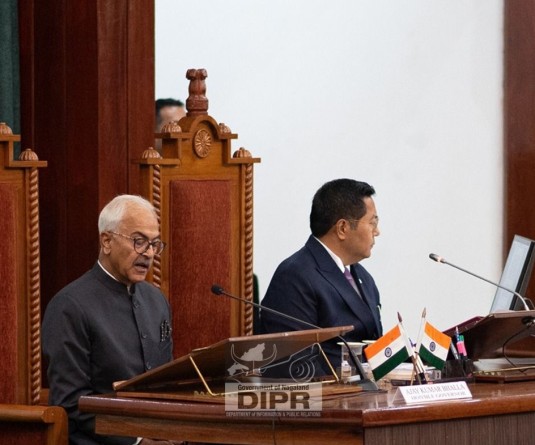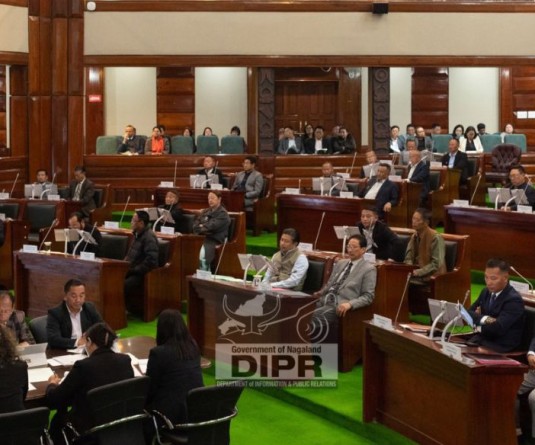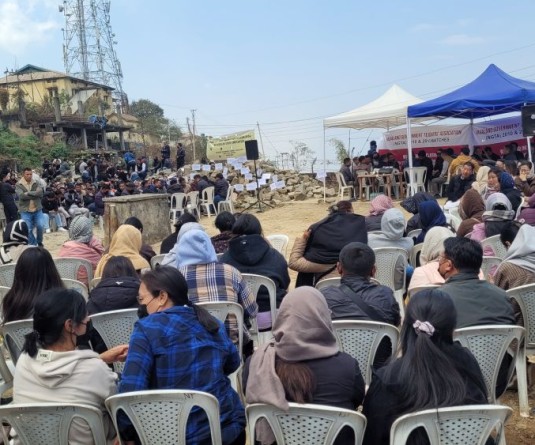On World AIDS Day, two PLHIV share their journey of trying to live a normal life
Morung Express News
Kohima | November 30
Whilst Nagaland stand as the second highest adult HIV prevalence rate in the country with 1.36% as against the national average of 0.21% as per Sankala 2022 report, People Living with HIV (PLHIV) continue to face numerous unique challenges and problems that impact their daily lives.
One of the key problems the PLHIV face is the stigma and discrimination. Society's portrayal of people living with HIV has fuelled stigma as HIV is often associated with promiscuity, drug use, and other negative stereotypes or even referred to as a ‘sinful disease.’
The lack of understanding and empathy from the society with judgemental attitudes has added to the stress and anxiety of PLHIV, thereby; making it harder for individuals to live a normal life.
Against the backdrop the World AIDS Day observation under the theme ‘Let communities lead’, The Morung Express highlights the account of two people who shares their experience and challenges of living with HIV.
Thirty-two year old *Naro said living with HIV has been a life-changing journey, filled with both victories and challenges. However, one of the most difficult aspects till today, is the fear of stigma and discrimination due to which she is still apprehensive of disclosing her status.
A trained nurse herself, Naro who was diagnosed in 2019, said she couldn’t really find out the source of the infection, and was not aware until she started developing symptoms which prompted her to go for a test.
“When I was first diagnosed with HIV, I felt a mix emotion of ‘shock, fear, anger and sadness’ and I just sat there thinking how to tell my mother who was with me,” she recalled.
However, she is one of the fortunate few who received the much needed love and support from her parents and siblings, whom, she said encouraged her to take antiretroviral treatment (ART).
Not to be let down by the disease, Naro said she has decided to dedicate her life to work for people like her who are affected by the virus even if it is just a word of encouragement. Today, she is working with an NGO.
‘Being diagnosed with HIV is not the end of the world for you, and doesn’t define your worth or character,’ she stated. Her advice to all those living with HIV is this- “Do not be discouraged, take ART regimen sincerely to lead a healthy life as any other human being.”
Recounting his life before and after being diagnosed with HIV, forty-two year old *Abel who has been into polysubstance abuse (using of more than one drugs) during the late nineties said, he has been in and out of jail several times.
He recalled how he relapsed even after being to rehab centres. He said the last option was a prayer centre where he joined in 2015 seeking spiritual strength and guidance and finally recovered. “It was through the grace of God that I recovered,” he said with gratitude.
In the course of his recovery, he met his wife and has been blessed with two daughters. “I came to learn that my wife was HIV positive, but I didn’t feel any remorse or anger and accepted it,” said Abel who was aware of HIV and all its related treatment and facilities by then.
Abel said he tested positive in 2021 after he went to RNTCP to test for TB. ‘Initially, I was angry and frustrated and I didn’t know what to do and what not to do,” he recalled. Subsequently after registering for the ART treatment, he regained his health slowly.
After reflecting on his past life and the years he had wasted on substance abuse, he said a life changing thought came to him to serve people like him. His prayers were answered when an opportunity came for him to work in NGO. He observed that unlike those years, the support system through networks and treatment facilities are in a much better position today.
And due to better medicine and treatments, the children are free of the virus. ‘They are both going to school and living their lives as any normal kids,’ he added.
Abel is grateful that he is living a fulfilling life now for having the opportunity to help people like him by sharing his past story and encouraging them not to lose hope. He hoped that ‘our society can evolve to support and embrace all individuals, regardless of their HIV status.’
(* Name changed to protect the identities)






